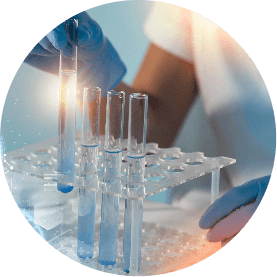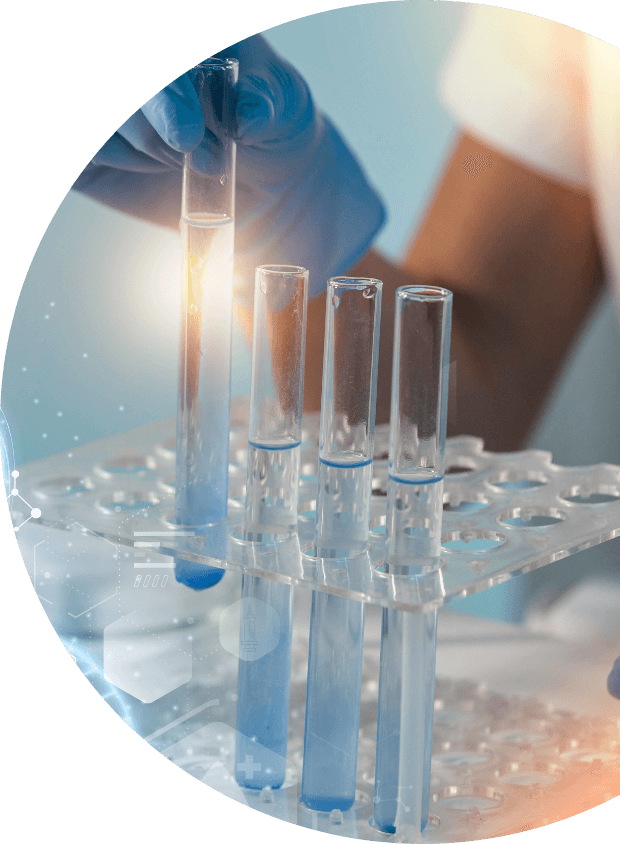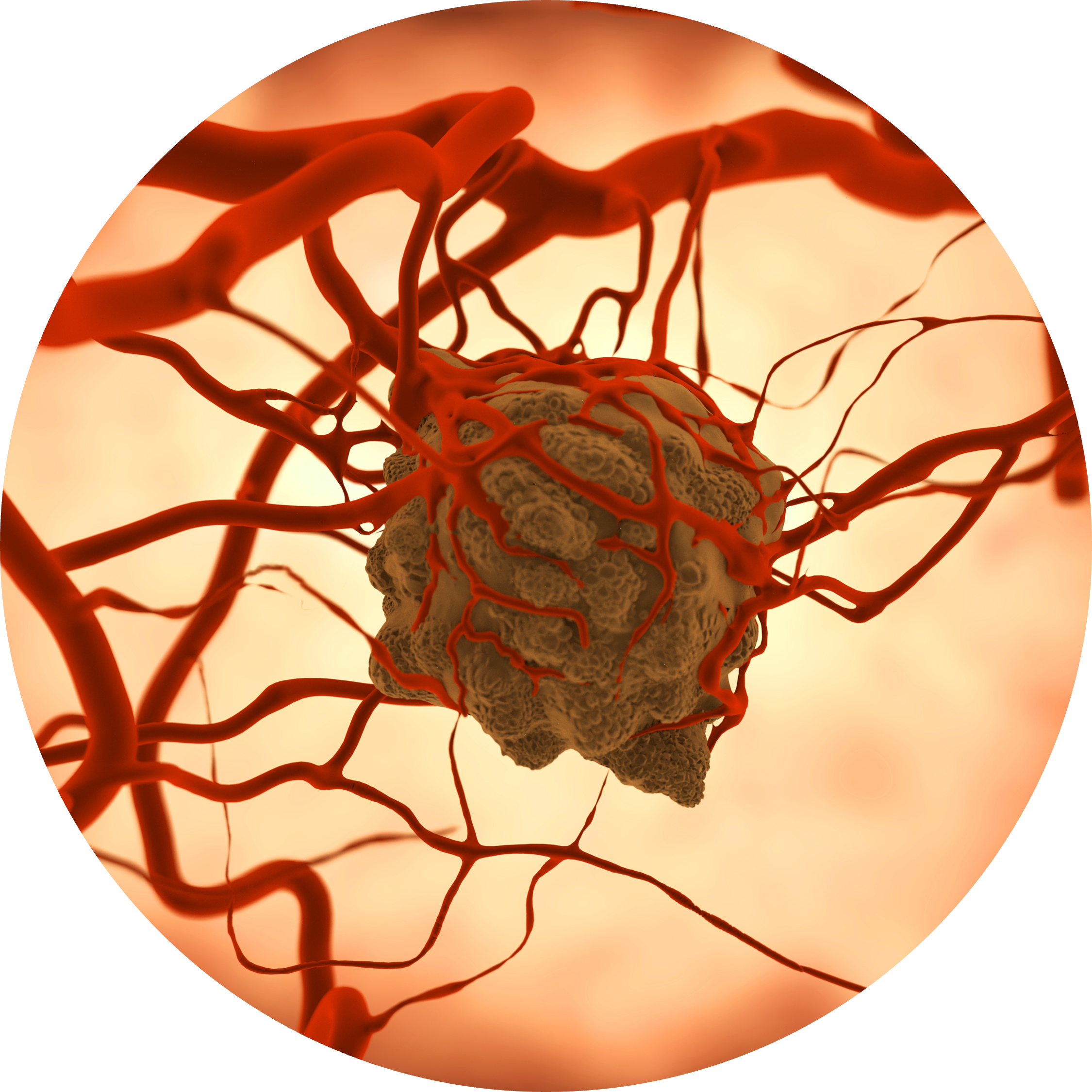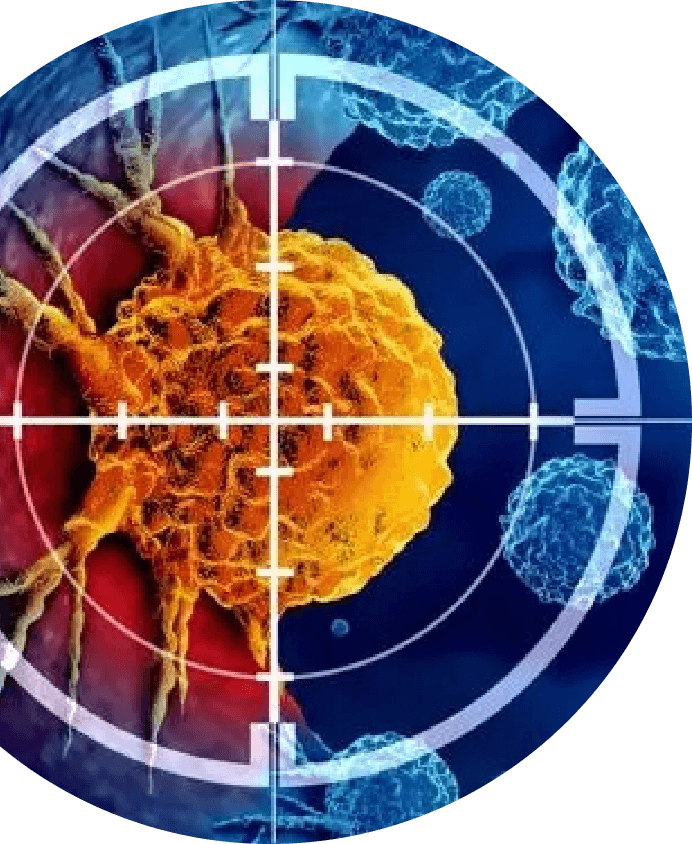An innovative treatment using targeted precision oncology.

MDM2 INHIBITOR
The p53 protein, often called the “Guardian of the Genome,” is a crucial tumor suppressor gene commonly mutated in human cancers. Its role in preventing tumor formation by inducing programmed cell death in response to cellular stress makes it a key target for cancer therapy. The project focuses on advancing SA53 (Selective Activator of p53), a novel therapeutic that targets p53 wild-type sarcomas, malignant tumors of connective or non-epithelial tissue.
SA53 works by triggering the body’s natural defense mechanism, p53, which inhibits or blocks a protein called MDM2. MDM2 is the most important factor that regulates or blocks a protein called p53. p53 works by suppressing or “putting the brakes on” the ability of cancers to grow, spread, and resist anti-cancer treatments. The p53 pathway is one of the most important natural defense mechanisms your body has against cancer. p53 activity is normally increased in response to many pro-cancer conditions. However, nearly all cancers find ways to bypass or prevent the activity of p53.
SA53 has demonstrated remarkable potency, efficacy and safety in preclinical models, positioning it for an Investigational New Drug (IND) submission. This innovative approach offers promising prospects for addressing chemo-resistant cancer and presents a significant pathway for advancing cancer care.
Lamassu’s clinical trial will focus on achieving objectives such as determining a safe dosage for future trials, understanding pharmacokinetic profiles, and assessing early signs of effectiveness in treating soft tissue sarcomas and solid tumors with wild-type p53. The main goal is to advance SA53 through trials to offer a potential new and effective treatment option for patients.





SA53 PHASE I/II CLINICAL EVALUATION
Sarcomas are rare and heterogenous malignancies of mesenchymal origin. Around 10% of the patients are diagnosed with metastatic lesions at first diagnosis, and 25% of the cured patients will develop recurrent high-grade sarcomas. Current standard of care involves a doxorubincin-based protocol combined with ifosfamide.
There are several potentially attractive indications for SA53 clinical development, the selection of which will be based on the initial trial results and clinical and commercial opportunity. The phase 1 portion of the trial will determine the maximum tolerated dose of SA53 and establish the safety profile. The subsequent phase 2a portion of the trial will include multiple expansion groups, including dedifferentiated liposarcoma, and a molecularly defined solid tumor cohort.
Lamassu’s initial focus for advanced clinical development is sarcoma, based on the common accumulation of MDM2 in this type of tumor. This includes Osteosarcoma (OS), Advanced/Metastatic Soft-tissue Sarcoma, Advanced/Metastic Leiomyosarcoma, Retroperitoneal/Resectable Sarcoma.
CLICK HERE to learn more about the clinical trials for SA53.


